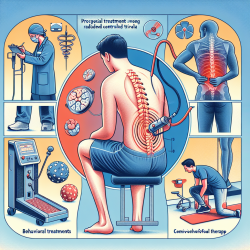Unlocking the Secrets of Successful Opioid Agonist Treatment
Retention in care is crucial for effective recovery, especially for chronic conditions like opioid dependence. The recent study, "Retention in the Austrian opioid agonist treatment system: a national prospective cohort study," provides valuable insights into factors that enhance treatment retention. As practitioners, understanding these factors can significantly improve the quality of care provided to patients.
Key Findings from the Austrian Study
The study analyzed data from 4,778 patients in Austria, revealing a two-year retention rate of approximately 61%. Several factors were identified as contributing to higher retention rates:
- Gender: Female patients showed higher retention rates compared to males.
- Age: Patients aged 30 and older had better retention rates.
- Region: Patients in Vienna exhibited higher retention, likely due to better access to treatment facilities.
- Medication: Slow-release oral morphine (SROM) significantly improved retention compared to other medications.
Implications for Practitioners
Understanding these factors can guide practitioners in tailoring treatment plans to enhance retention. Here are some strategies to consider:
- Gender-Specific Approaches: Develop targeted interventions to support male patients, who have shown lower retention rates.
- Age-Appropriate Support: Older patients may benefit from additional resources to maintain engagement, while younger patients might need more intensive support.
- Regional Accessibility: Advocate for improved access to treatment in regions outside metropolitan areas to ensure equitable care.
- Medication Choices: Consider the benefits of SROM for patients struggling with retention on other medications.
Encouraging Further Research
The Austrian study highlights the importance of a systematic approach to monitoring treatment retention. As practitioners, engaging in further research can help refine treatment protocols and improve patient outcomes. Consider collaborating with academic institutions or participating in professional networks to stay updated on the latest research developments.
Conclusion
The insights from the Austrian study provide a valuable framework for improving opioid agonist treatment retention. By implementing these findings, practitioners can enhance the quality of care and support successful recovery for their patients.
To read the original research paper, please follow this link: Retention in the Austrian opioid agonist treatment system: a national prospective cohort study.










